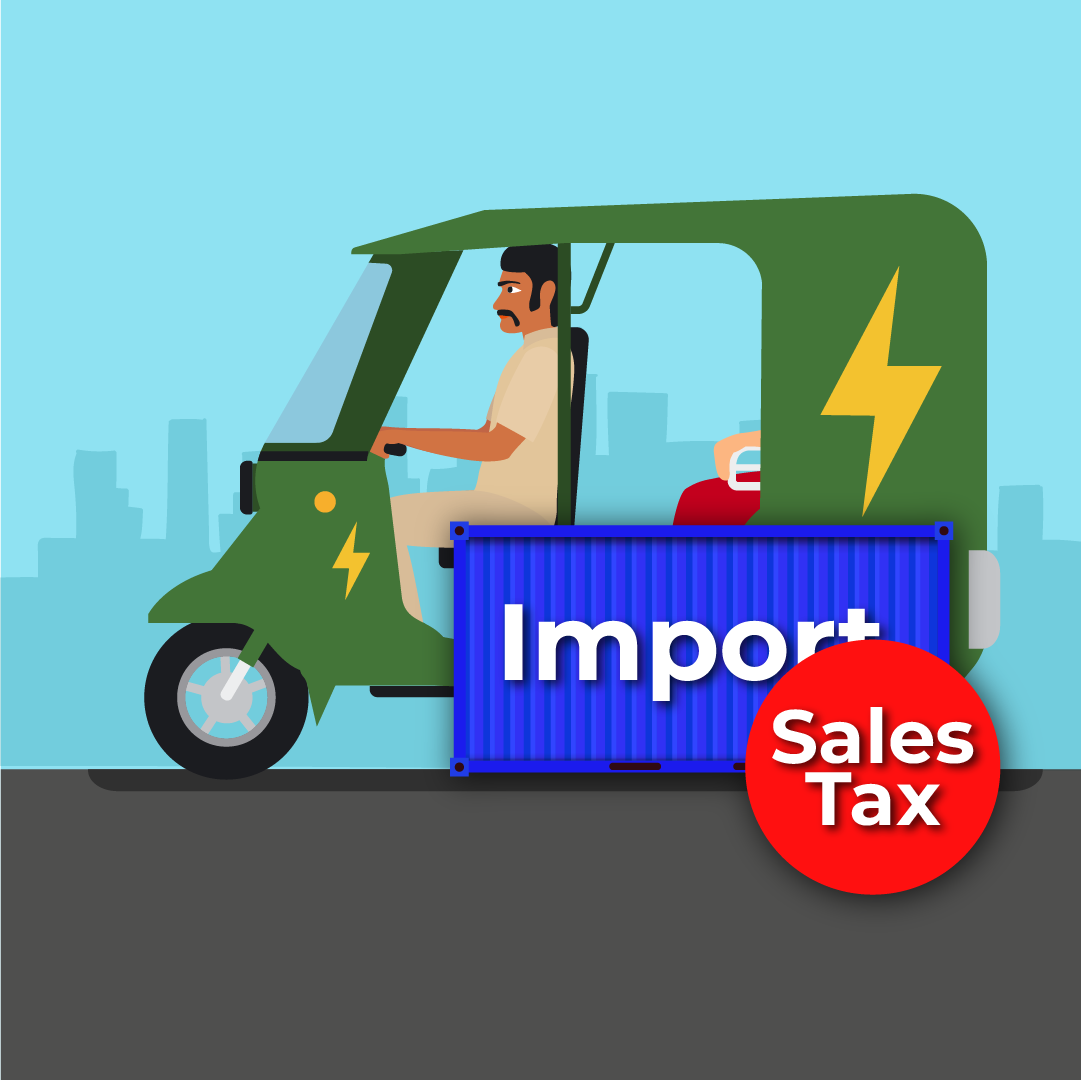Muhammad Ramzan, a resident of Salamatpura area of Lahore, has worked as a rickshaw driver for the last 14 years. All his life he has driven the three-wheelers running on petrol but now he has shifted to green technology for various reasons, including the rising cost of fuel. He bought an e-rickshaw worth Rs1.1m by the end of last year.
He never came across any trouble since he started driving the new rickshaw. This rickshaw has a 30kW motor and four lithium batteries that are charged in about five hours.
These slow-speed but silent vehicles are not only more comfortable but are a means to combat environmental pollution and noise. They run on batteries that look expensive but actually are five times less costly.
At the start of the year, the Punjab Transport Department introduced electric rickshaws in collaboration with a private company. A number of these rickshaws are now seen on the roads in Lahore.
“With a fully charged battery, an e-rickshaw runs 80 to 90km; however, the mileage depends on speed and load. If a rickshaw with a capacity of five passengers exceeds in load, the battery mileage decreases,” Ramzan says.
He says there is a charging point on the Bedian Road for charging the batteries. At this point, he exchanges the uncharged batteries with charged ones. Currently, their recharging costs around Rs1,100.
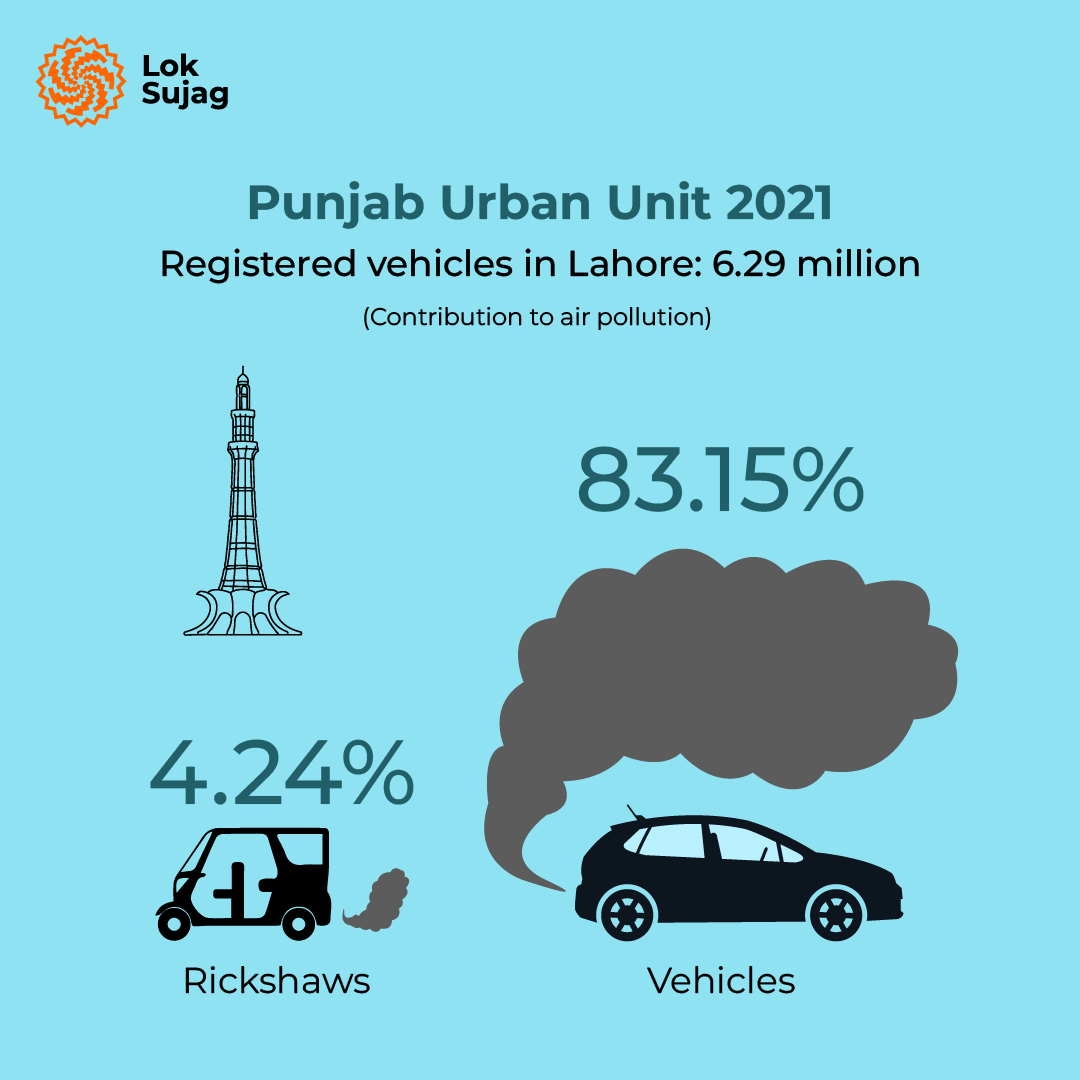
Ramzan explains that he carefully considers the route and distance while booking rides as the battery-changing unit is available only on the Bedian Road. It will be easier for running e-rickshaws when there will be more such units in the city, he asserts.
Muhammad Sufyan has purchased an electric rickshaw from a private company on instalments which has a fixed battery capacity of 9kW. Despite going to the Bedian Road, he charges the batteries at home.
He informs that the battery is charged in four to five hours on full voltage. Its charging takes four to five units of electricity. Hence it is charged for Rs200 according to Rs40/unit.
Sufyan charges the battery at night and then in the morning after dropping the kids to school. He drives a rickshaw for regular rides after dropping the children back at their homes. From the daily income he sets aside some money for the instalments and buying a new battery.
“If this battery goes out in two years, I will sell it and buy a new one. While running a rickshaw service, one has to be careful that batteries and digital meter are not damaged by water,” he says.
Tahir Shafiq, the project director of the Electric Vehicles Department of Sazgar, the first company to obtain a license to manufacture e-rickshaws in Pakistan, says that in an electric rickshaw, a motor is installed in place of the engine. It is powered by a battery, while its speed and efficiency are increased by a controller, he adds.
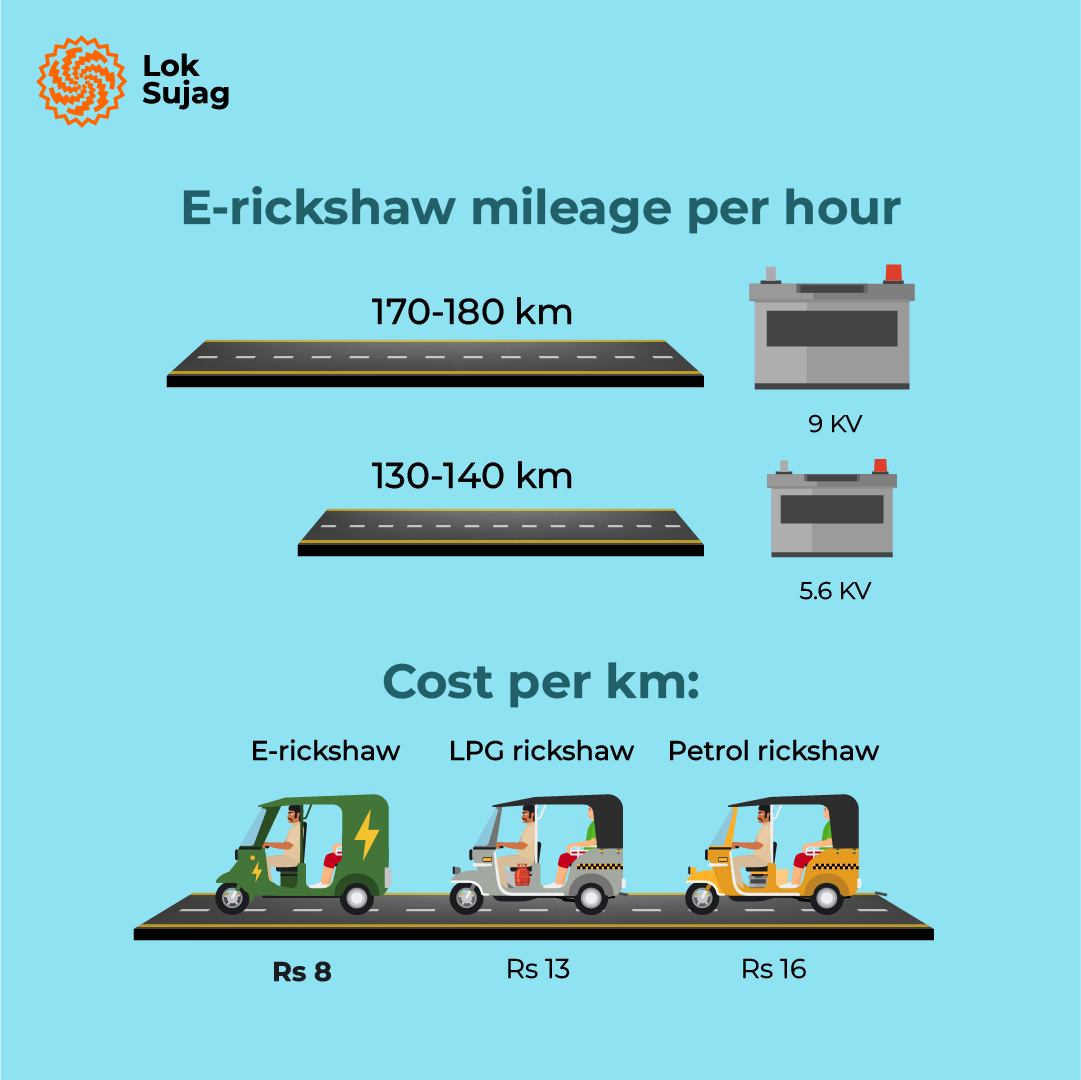
“Our company is manufacturing the electric rickshaw which is designed with advanced features. However, we import its batteries, motor and controller.”
Shafiq reveals that according to his calculations, the annual cost of an e-rickshaw is Rs70,000 to Rs80,000 whereas its maintenance is negligible. On the other hand, the annual cost of a traditional auto rickshaw is around Rs700,000 to Rs800,000, including the cost of fuel, tuning, engine oil, etc.
According to him, there are no issues of change of engine oil, piston rings, clutch plates etc due to less number of moving parts in an e-rickshaw.
Hasnain Mehdi, the project manager of Sazgar, says his company has been making auto-rickshaws for a long time while the e-rickshaws manufacturing was launched in 2019. However, it also received a license to manufacture other electric vehicles in Punjab this year in January.
He informs that the company holds the capacity to make 2,000 electric rickshaws annually but the lack of registration prevented its introduction in the market. After receiving the license, 50 e-rickshaws have been manufactured and the production will be increased according to the demand.
Mehdi says that besides the license, the excise department is now registering the rickshaws manufactured by local companies and allotting numbers. As of Dec 31, 2023, 368 e-vehicles and 2,711 e-motorcycles have been registered in the province.
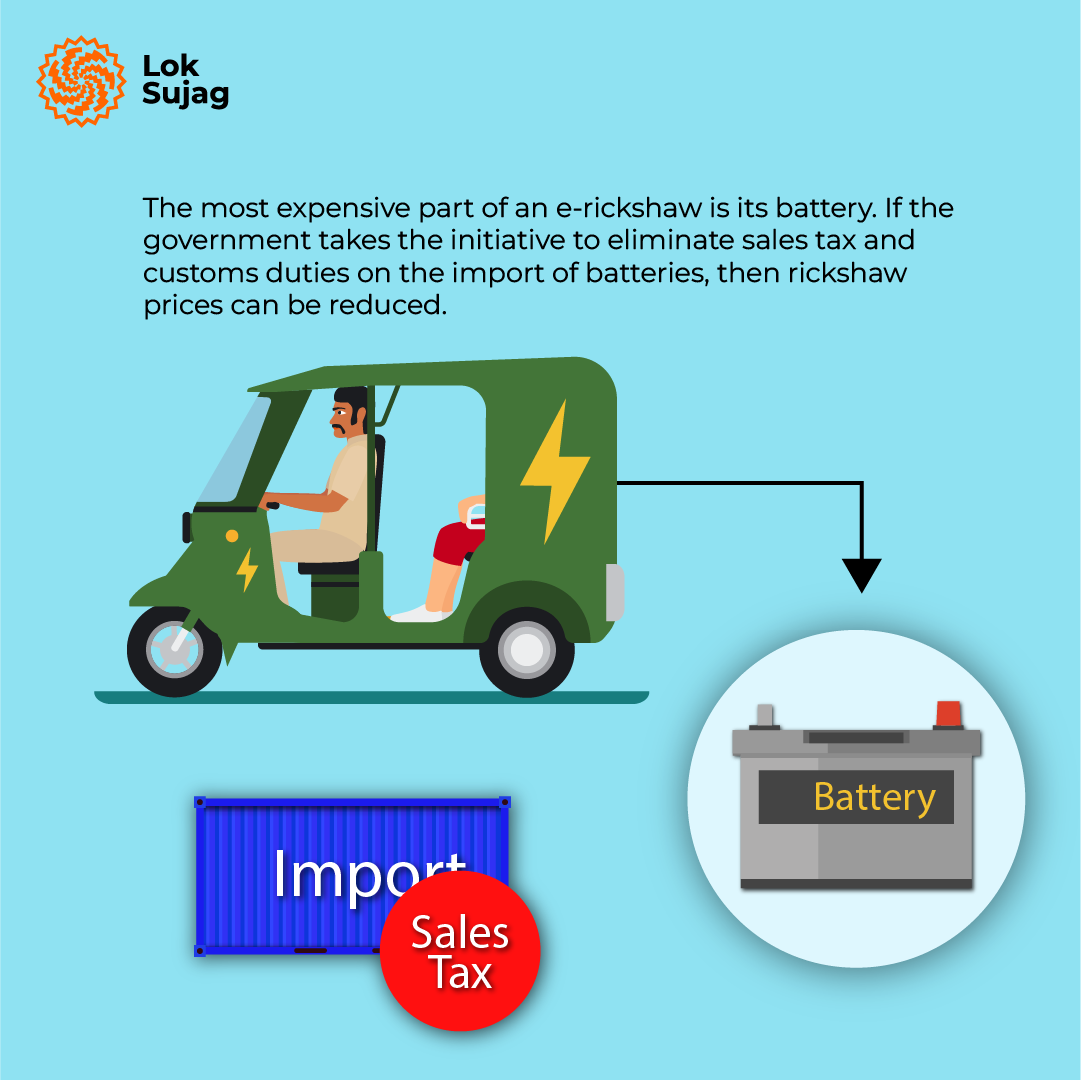
“E-rickshaws are equipped with two types of batteries, some of which have a capacity of 5.6kW per hour and the other 9kW per hour. The rickshaw covers a distance of 170km to 185km with 9 kWh batteries and 130 to 140km with a 5.6 kWh battery.”
Mehdi says the battery of an e-rickshaw is fixed and can be charged at any electric point provided by the charger company. The 9kW battery takes five hours to charge while the 5.6kW battery takes four hours.
The Lahore University of Management Sciences (LUMS) has also developed e-rickshaws. Engineer Umer Afaq who is associated with its e-vehicles project explains that the rickshaw he developed also uses four batteries of 1.4 kWh each, with a total capacity of 5.6 kWh.
These batteries can only be charged at a special charging point. Some companies are using fixed batteries that can be charged at home but the LUMS rickshaw has a set of easily removable four smaller batteries.
Afaq says that these lithium batteries will operate even in 60 degrees Celsius. The e-rickshaw is equipped with a battery management system for voltage control and charging indicators are also present.
According to Umer, the battery voltage is not affected until 80pc usage but when the battery is down to 20pc, it becomes necessary to charge it.
He claims that per kilometre cost of the e-rickshaw is Rs8 to Rs9 whereas that of petrol rickshaw and for an LPG (liquefied petroleum gas) one, it is Rs16 and Rs13, respectively.
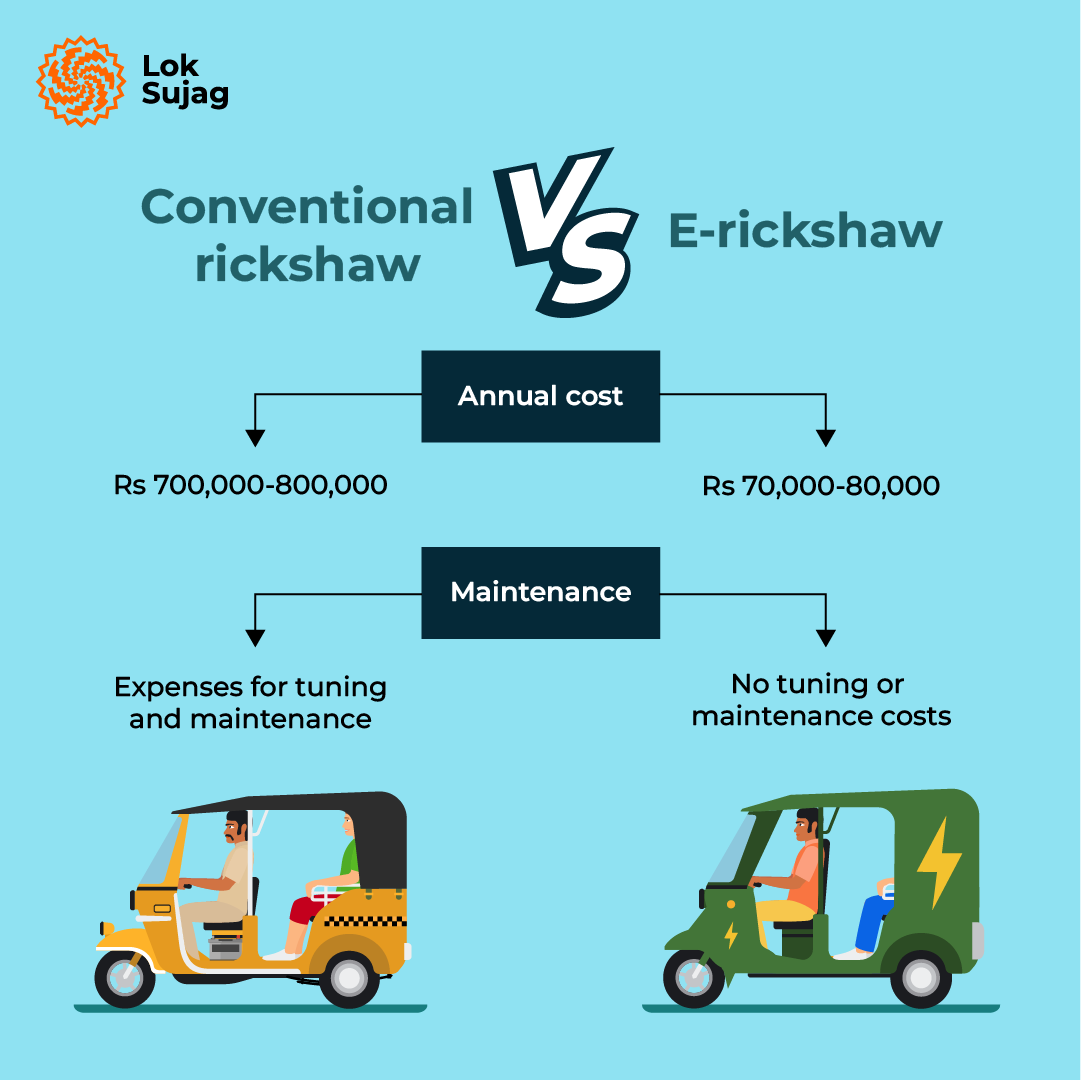
Ayesha and her class fellow Umm-e-Habiba, both students of a local university, used to commute to their university in an auto rickshaw. According to Ayesha, e-rickshaws are not noisy and they don’t emit irritating smoke. That's why she has now shifted to an e-rickshaw.
Umm-e-Habiba says travelling in e-rickshaws is surprisingly pleasant and there should be more such vehicles in the city to reduce pollution.
However, men slightly oppose these perceptions. Kamran Hanif is a private company employee who objects to the slow speed and noiselessness of e-rickshaws. He believes that due to its lack of noise, many people are often hit by these rickshaws. Moreover, the speed of these rickshaws also needs to be increased.
Hidayat-ul-Rehman, a sales and marketing director of a local company, assembles e-bikes and rickshaws of a Chinese company EV-ON. He says that the most expensive part in an e-rickshaw is the battery. He thinks the e-rickshaw’s price will drop considerably if the government abolishes import duty and sales tax on batteries.
He adds that a common man can’t buy it as the current price of an e-rickshaw starts from Rs1m. He suggests to the government to give interest-free loans through banks to make it convenient for the people to buy it. He also called for increasing the battery charging points and shifting them to solar energy to reduce the charging cost.
Also Read
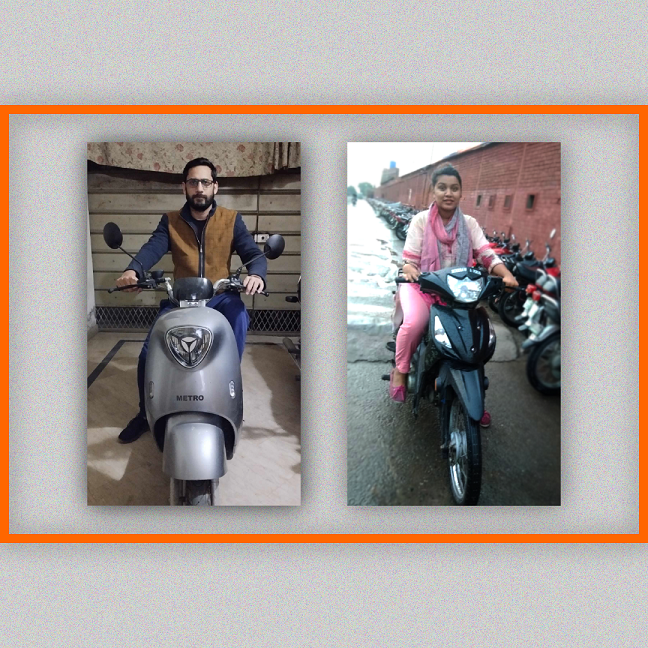
Electric Bikes: Empowering Individuals and Combating Climate Change
However, Afaq informs that some Pakistani companies are about to start their business of providing batteries specifically for e-rickshaws. This will facilitate the rickshaw drivers to exchange the uncharged batteries with the charged ones at the company’s power station just like the filling stations.
According to the ‘Sazgar’ company officials, an e-rickshaw lithium battery prices are attached to the USD. However, currently, a battery with a capacity of 9kWh is available for Rs0.5m and that of 5.6kWfor Rs0.4m. Similarly, the price of four 1.4kW batteries is around Rs450,000. However, these prices vary with different companies.
The biggest advantage of e-rickshaws is their zero carbon emission.
According to a Punjab Urban Unit report, transport is the main cause of noise and air pollution in Lahore where the number of registered vehicles in 2021 was over 6.2m. These vehicles contribute 83.15pc to transport pollution whereas auto-rickshaws contribute only 4.2pc.
Rafay Alam, an environmental lawyer, former chairman of Lahore Electric Supply Company and a member of the Lahore Waste Management Company Board, terms substandard petrol and diesel used in Pakistan the main cause of pollution, particularly the fuel used in auto rickshaws and motorcycle-rickshaws.
Alam says there the country needs to make a clear policy in the country to subsequently shift the transport to e-vehicles. “It will reduce pollution, oil consumption, and imports. Similarly, it is essential to improve the charging infrastructure and reduce registration fees and taxes to promote e-vehicles.”
In January, the caretaker Punjab government had announced interest-free loans for 26,000 e-motorcycles and rickshaws. In this regard, the transport secretary informed us that this project will progress through the consultation with the new government.
Published on 29 Mar 2024
